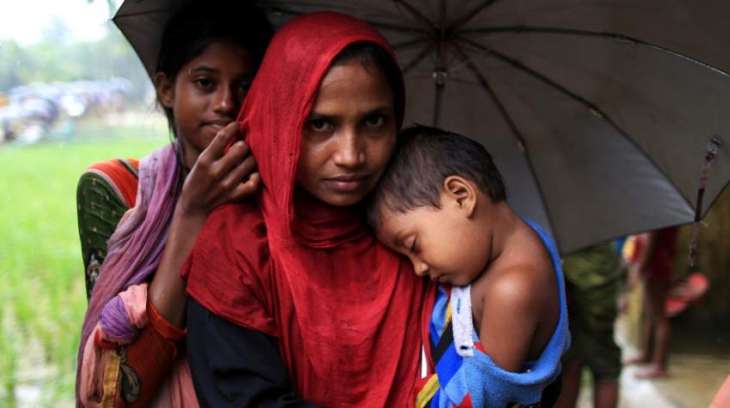Women, who have suffered from terrorism, often face unthinkable choices in the aftermath, while children should not be held responsible for something they had no control over, Fionnuala Ni Aolain, UN Special Rapporteur on the promotion and protection of human rights and fundamental freedoms while countering terrorism, told Sputnik in an interview
GENOA (Pakistan Point News / Sputnik - 21st November, 2019) Women, who have suffered from terrorism, often face unthinkable choices in the aftermath, while children should not be held responsible for something they had no control over, Fionnuala Ni Aolain, UN Special Rapporteur on the promotion and protection of human rights and fundamental freedoms while countering terrorism, told Sputnik in an interview.
"Most national legal systems also deal with children who commit violent crimes. We have that in every national system in the world, and it concerns me deeply that we treat these children as children, most of whom ended up either being born or being brought to Syria or Iraq without any choice or any consent on their part. A two-year-old does not exercise consent over where they go. A 16-year-old often doesn't exercise consent over where they go," Ni Aolain said.
The rapporteur remarked that the people who brought children to armed groups should be held responsible under international law.
"And we have certainly done that. The International Criminal Court has done that, and again, in the case of Syria we should be holding groups and individuals who have abducted or used children or coerced children into armed violence, we should be prosecuting them. ... I think it's unhelpful when we have a kind of a totalizing narrative that these children shouldn't be treated as children, and that's a very strong view of my office and that of the secretary general's specialized officers in respect of the treatment of children in this conflict," she continued.
In the case of women, simply the fact of being married to or having a child by a man involved in terrorist activities does not make the woman responsible for the acts that he committed, the rapporteur noted. An individual evaluation is needed.
"In terms of the harms that women have experienced, the data that my office and a number of other UN offices have, what we know is that a number of women, particularly young girls, were 'groomed' online. We know that terrorist groups use online propaganda and online resources to target young men and young women. In the case of other places, we call that trafficking, so we say they were groomed and trafficked. It's very clear that there was large-scale grooming and trafficking by these groups, and there are crimes under international law that we can prosecute them for, and we should be doing so using either the International Criminal Court or national legal systems," Ni Aolain said.
Moreover, many women in Syria, especially Yezidi, experienced widespread rape and sexual violence by Islamic State (terrorist group, banned in Russia) members. There is also a significant number of children who were born of rape.
"Many of those children who were born of rape will be perceived as security risks for no other reason other than the fact that they were born in the circumstances that they were born. The life cycle of those children is being determined by things they have no control over, and it seems to me an appalling abdication of our responsibility to those children, not in particular to take them back to countries where they have some chance of being, of living a reasonable life," Ni Aolain said.
"I am aware that with women who were raped, so the Yazidi women are the most obvious example, that their communities have said they will take them back, but not their children. So then women are being faced with these absolutely awful choices where they can go back to their homes or they can abandon their children," she continued.
On November 11, four United Nations rights advocates expressed their concerns over the human rights, humanitarian and security situation faced by women and children in overcrowded camps in northern Syria and Iraq. The statement was signed by several high-profile UN representatives, who called on all states to take measures to avoid the stigmatization of children born of conflict-related sexual violence, prevent their discrimination and take all measures to prevent statelessness.




